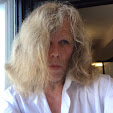Sartre was slightly misinterpreted by our minister tonight during a reading of the book of Mark, understandably. But was it sneaky? First of he quoted, "existence precedes essence" and I coughed to signal it was from Being and Nothingness. Then he mentioned the author's name with the remark "Maybe that's why his novels bring only misery." And he used the title No Exit as though taken aback with a shudder. I'll agree that the Book of Mark uses the baptism of Jesus Christ as a narrative, which frames the discourse. Christ baptized is innocent. But then he went into a "counter-radical" theme that it was one King against another. I remembered that the Flies was based on Greek tragedy, so it's almost theology slighting Greco-Roman art. But to properly quote Sartre, "Life begins on the other side of despair." It's just that with the point of departure of "Man is God", what is ethical and aesthetic has a human source, not transcendent or supernal. But then I thought, why quote it if it is inevitable that someone will add that he didn't quote, "Hell is other people?", which really has nothing to do with Christ. Why relate it to the Book of Mark when really "to exist is to be perceived" would have been enough- Christ is perceived by God when baptized. And even that has implications of there being a soul, a God-connected soul. The kicker is its been thirty five years since I first was interested in a volume titled The Tragic Finale written by Wilfred Desan that outlined the For-Itself, In-itself relation. God would have been the in-itself and man the for-itself excepting that the epistemology of faith doesn't quite apply. I guess God's silence would account for the in-itself as a form of freedom. But life does begin the other side of despair. (Action is the responsibilty to create oneself authenticly- without "Bad Faith" or self-deception.) There is nothing in heaven; nothing in heaven that can; nothing in heaven that can prevent the individual from making himself and experiencing the freedom of becoming authentic. That is the despair. Despair For Itself. We are here to make love not referee wars and crucifixions, we are here to out conceptualize sin, to out think it, not to personify it. You know the "common folk" really would have said it wasn't really an Easter, but God was just watching someone die unnecesarily so he could turn around, resurrect and laugh at mankind for being tempted. "You stole my messiah and I could have sent him to heaven the whole time". In Sartre's ontology, it really isn't dependent upon man being governed by his sinful nature and the omnipotent creator being impotent. We record history best when God is impotent, when we can watch Empires fall. The other discussion was between my fiancee and I about my not realizing that St. Patrick (in perpetuity: et. al.) lived near to or before the time of Alfred the Great and that the Book of Kells is earlier than I thought. I was reading that he mostly spread the word in between Viking Invasions. I didn't mention to her that many of the Irish Princesses were mistaken for saints when the Vikings were around.
Postscript- The Following Week
Because she's the church librarian we were there this week as well. I passed the minister and thought keep things social untill necessary but do the reading, that is to say, read and don't find questions to ask untill they are needed. So after I said "Hello" the phrase "ground of being" came to me and then I remembered Paul Tillich. I went in and found a History of the Church and found a one page summarization of Paul Tillich and the "principle of correlation" which is based on faith. The someone mentioned that the author of the textbook I had in my hand is visiting the church from Oxford to attend a conference here in Boston this April.
Still arriving at a discussion of Paul Tillich by mentioning Sartre from behind the pulpit still seems a little surrepititious.


No comments:
Post a Comment